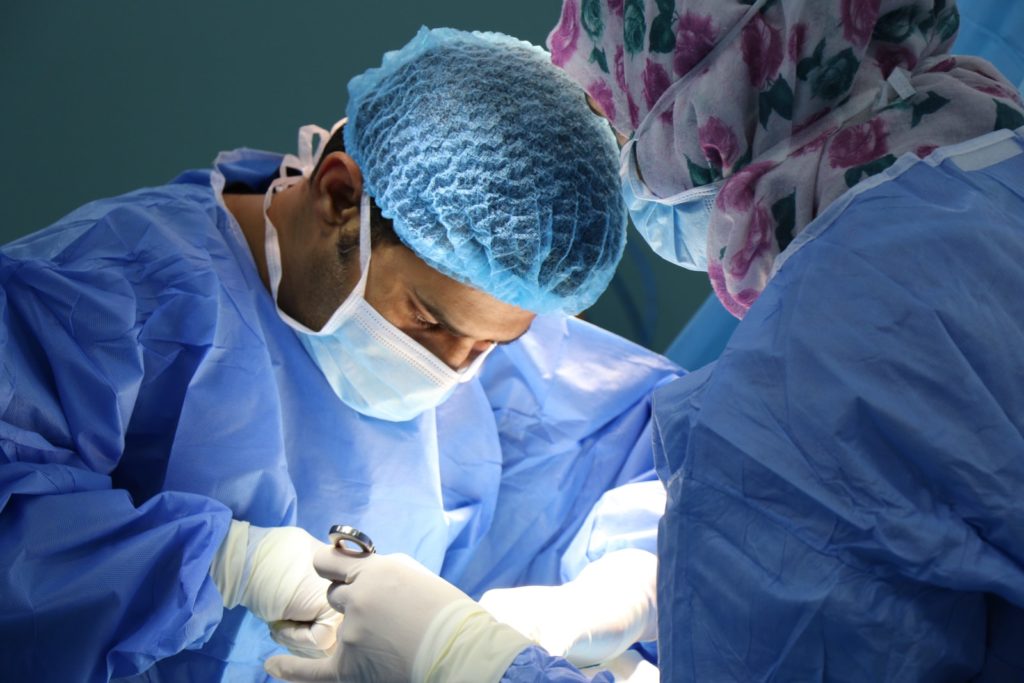The overuse of hospital testing and procedures is a pervasive issue in the U.S. During the first year of the COVID-19 pandemic, hospitals performed more than 100,000 “unnecessary” procedures on older Americans. Out of those 100,000 unnecessary procedures, 30,094 of them were spine surgeries.
But back pain associated with aging is treatable in many ways without complicated surgeries. In fact, complex back surgeries have a high rate of life-threatening complications, such as heart attack, stroke, or pneumonia. Hospitals and doctors can avoid issues pertaining to spine treatment by advancing their education and research on biomechanics and providing high-quality spine care that is in the best interest of the patient.
Toll of Back Pain
Back pain is the sixth most costly condition in the United States, with approximately 16 million adults experiencing persistent/chronic back pain. Health care costs and indirect costs resulting from back pain have reached over $12 billion per year. Surgeries
In fact, back problems represent one of the most frequent patient complaints to doctors. Many of the indirect costs of this chronic condition are related to missed days of work and disability payments, with some 83 million days of work lost per year due to back pain. Back pain may also affect other activities, including athletic performance and exercise. Surgeries
Fortunately, research and education can play an important role in high-quality spine care and advancing a deeper understanding of biomechanics—the science of movement of a living body, including how muscles, bones, tendons, and ligaments work together to produce movement that could improve activities of daily living. For this reason, educating health care teams, payers, and employers on pain management solutions can enhance spine care for patients of any age group.
Role of Flexible Custom Foot Orthotics
Feet are the foundation of the body and, if stabilized and positioned correctly, can provide the body with proper alignment that reduces the likelihood of injury or back pain. Flexible custom orthotics are scientifically designed for the individual’s unique posture problems. Failure to address these issues can result in less efficient movement, causing additional strain and stress on spinal pelvic stability. Flexible custom orthotics that support all three arches of the foot can help promote good posture and spinal pelvic stability so the muscles, connective tissue, and nerves surrounding the spine stay healthy. Surgeries
Flexible and “Custom” are the key benefits of custom orthotics: Using the latest technologies, such as weight-bearing scans or 3D imaging, flexible custom orthotics are scientifically designed for the individual’s unique posture problems. They are designed to treat the source of a person’s problem and help balance the pelvis and spine. Often the foot is asymptomatic and does not hurt; however, the imbalanced foot can create knee, hip, and back pain. In the presence of neurological deficits or biomechanical issues, flexible custom orthotics can be the solution to a unique problems, such as foot, knee, hip, and spine pain. Flexibility is very important because when motion is restricted in one joint, which can occur with a rigid orthotic, hypermobility is transferred to the next joint up – this restriction can cause more instability up the kinetic chain. Surgeries
Avoiding Opioids
Opioids are often prescribed for acute pain and other painful conditions for patients in the emergency department and primary care settings. Adequate relief of pain is a core tenet of caring for patients, but opioid use for acute pain is associated with an increased risk of long-term opioid use. This raises the risks of opioid use disorder and overdose among a minority of people exposed. Surgeries
The staggering increase in opioid prescriptions in the United States was a driver of the onset of the first wave of the epidemic of drug overdose deaths. This public health epidemic has raised the need for an ongoing national debate about the exact best practices for prescribing opioids and preventive measures.
Studies document that handcrafted custom orthotics are proven to reduce lower back pain by 34.5% and improve function by 18.9%. This research demonstrates trends of improved patient outcomes and reduced healthcare costs, two increasingly important factors in American healthcare and society in terms of our growing focus on individuals maintaining an active lifestyle. Surgeries
Science of Movement
Recently, Foot Levelers announced a $500,000 endowment for a Chair in Biomechanics and Human Performance at Northwestern Health Sciences University (NWHSU) to support research and education and advance a deeper understanding of biomechanics. Surgeries
This endowment will provide the opportunity to find more efficient, effective care that leads to improved patient outcomes and better quality of life, especially pertaining to spine care, throughout the world. Research is critical for improving spine care, human performance, and biomechanics, so such an endowment can go far to support health care teams worldwide. Surgeries
The goal is to enhance well-coordinated patient care among different providers and institutions that bring together care for the whole person. This level of commitment to research also resonates with providers, patients, and payers.
Foot Levelers also created an annual $25,000 matching gift to NWHSU to be used to further clinical research on functional orthotics products and their effect on the biomechanics of the whole body, especially the spine.
This level of support provides benefits that extend to payers and self-insured employers who are seeking pain management solutions that avoid the use of opioids or incur expensive hospitalizations, surgeries, or interventions that drive up the cost of care.
Author: Kent S. Greenawalt, Chairman and CEO, Foot Levelers
